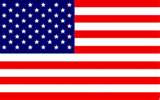Why do members of the national legislature give away your money as fast as it can be borrowed? Because they want campaign donations. Polls show Americans don't like the idea of public funding for House and Senate elections, because it seems like a giveaway. But the public already funds congressional elections, just in an incredibly overpriced, inefficient way. Members of the House and Senate give away billions of dollars in subsidies and tax breaks to special-interest groups, in order to get back thousands of dollars in campaign donations. The $150 billion or so in sweetheart handouts in the bailout legislation will probably result in several million additional dollars given to House and Senate members as campaign donations. It would be far, far cheaper for taxpayers just to fund congressional campaigns! Suppose the public funded each House race at $1 million (435 races every second year) split between the parties, and each Senate race at $5 million split (roughly 34 races every second year), then banned campaign contributions. (Skip whether the Supreme Court would allow the latter, this is a thought experiment.) The cost would be about $600 million every second year, when there are national elections. That's peanuts compared to the amounts House and Senate incumbents give away to PAC-backed lobbies in order to inspire campaign donations. Federal financing of House and Senate races would save the public tens, if not hundreds, of billions of dollars.
Why are we here? In Part cause in april, the governors boasted about balancing their states' budgets while wagging their fingers at Washington -- yet about a fifth of the typical state's non-Medicaid revenue comes from Washington. That is, the federal government expands the national debt so that states can appear to have balanced budgets, creating a switcheroo in which taxpayers are angry at Washington when they should be angry at their statehouses.
Here's the update. New York state has a $6.4 billion budget shortfall in the current fiscal year, second only to California's budget problem. Recently, New York Gov. David Paterson asked the state's legislature for $1.2 billion in spending cuts -- meaning the Empire State volunteered to take responsibility for only a fraction of its self-created problem -- then called on Washington to hand Albany the rest of the money: $5.2 billion. Paterson said, "We are going to have to turn to the federal government for help." So New York is not willing to make significant spending cuts and not willing to tax itself; but perfectly happy to demand that voters in other states be taxed to bail out New York! Last week, California Gov. Arnold Schwarzenegger said the state would ask the federal government for a $7 billion loan. So California is not willing to tax itself to solve its self-created budget problems, but perfectly happy to demand that voters in other states be taxed to bail out California!
Perhaps this is what should be expected when Washington is so poorly run; the nation's capitol seems like little more than a giveaway machine. Yet numerous states, including Colorado, Oregon and Pennsylvania, have budgets in fine shpare because they did not overspend, as New York and California did; or saved during surplus years (all states had a combined $74 billion surplus in fiscal 2006 -- the responsible states saved some of that amount); or are not plagued by official corruption. Why should the people who live in states that spend carefully and pay their own way be compelled to subsidize government waste and kickbacks in California and New York? And why do the mainstream media continue to depict governors as fiscally paladins when so many shift their problems, and their debts, to Washington?
Here is evidence that the fiscal switcheroo favors governors politically. Polling data from the Pew Center shows that only 37 percent of Americans have a positive impression of the federal government, while 59 percent have a positive impression of state government. Remove the bookkeeping gimmicks that send federal money to the states and state taxes would rise while the national debt declined. Favorable-impression rankings surely would improve for Washington, while governors would decline in popularity.
This information comes from one of my favorite columnists Greg Easterbrook.
 Daddy says Eric used to love stealing online music and making great mix CDs for his friends...now he blogs about giving away all his great entertainment...
Daddy says Eric used to love stealing online music and making great mix CDs for his friends...now he blogs about giving away all his great entertainment...
 This is the face i would have if Eric visited and we went to a ball game and ate salted meats with my dad..... but he doesnt want to..
This is the face i would have if Eric visited and we went to a ball game and ate salted meats with my dad..... but he doesnt want to..
 I am dreaming of a day when my Dad and Eric will play on the same baseball team and Eric's brittle bones wont break from the lack of protein.....
I am dreaming of a day when my Dad and Eric will play on the same baseball team and Eric's brittle bones wont break from the lack of protein..... Why hello........ I have taken the baby hostage and wont give him back unless you give me more treatsies.... Bwahahaha...
Why hello........ I have taken the baby hostage and wont give him back unless you give me more treatsies.... Bwahahaha...



















